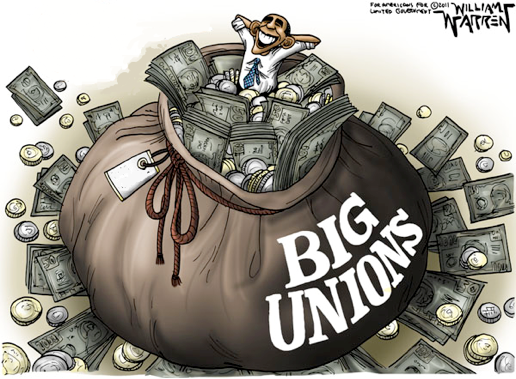By Nathan Mehrens
In today’s workforce, union membership isn’t as widespread as it once was. Years ago the percentage of private sector employees who were members of unions was much higher. In 1974, nearly a quarter of the private sector workforce was unionized. Now, that figure is 6.6 percent.
In an attempt to curtail this downward trend, many unions have resorted to alternative types of organizations through which they do some of their organizing and representational work. Given the generic moniker, “worker centers,” they claim to do work and advocate on behalf of employees, like labor organizations do. Yet, many of these organizations are not setup as labor organizations and this is problematic from a tax law standpoint.
Under the Internal Revenue Code (IRC) there is a specific subsection, 501(c)(5), that applies to labor organizations. If an organization’s activities are of the type that fit within this subsection then they can obtain tax-exempt status from the IRS. Many worker centers have chosen a different path, claiming to not be labor organizations but instead to be a different type of tax-exempt organization, one covered by IRC 501(c)(3). This means that contributions to the organization are deductible from an individual’s taxes, and it also means that the organization can receive contributions from foundations — something a labor organization cannot. Contributions to labor organization are not tax deductible.
Because of the tax advantages to being structured in this fashion, their desire to do so is understandable. But, are they acting appropriately and should they instead be treated as labor organizations for the purposes of the tax code?
The IRC and the court decisions interpreting it give us the framework upon which to perform such an analysis. Under the IRC, an organization must be organized and operated exclusively for religious, charitable, scientific, literary or educational purposes in order to qualify for 501(c)(3) status. It must serve a public purpose or it will not be deemed to be organized and operating exclusively in these categories. Labor organizations, while eligible for tax-exempt status, generally do not qualify for 501(c)(3) status because they exist to serve the private benefit of their members.
When reviewing the activities of several worker centers, the private benefit that is inuring from these activities is clear. For example, dealing with employers regarding the terms and conditions of employment is a private benefit. Many worker centers are doing exactly that – advocating to and directly dealing with the employer regarding the terms and conditions of employment.
Additionally, there are significant questions about the legality of the tactics that are being deployed by some of these worker centers. An organization is not eligible for 501(c)(3) status if they engage in substantial illegal activities. Some worker centers have engaged in illegal activities such as trespassing, physically blocking entrances to workplaces, assaults and harassment, and using fraudulent credentials to obtain unauthorized entry to an event.
All this is troubling, especially considering the 501(c)(3) status of these organizations. As such, in a letter we call on the U.S. Congress and the IRS to take a hard look at these issues. In those instances where worker centers are actually labor organizations in disguise, they should be treated by the IRS as labor organizations, not as 501(c)(3) organizations. A labor organization in disguise should not receive a preferable tax advantage that is not available to other types of organizations that engage in similar activities.
Nathan Mehrens is General Counsel of Americans for Limited Government and President of Americans for Limited Government Foundation.







